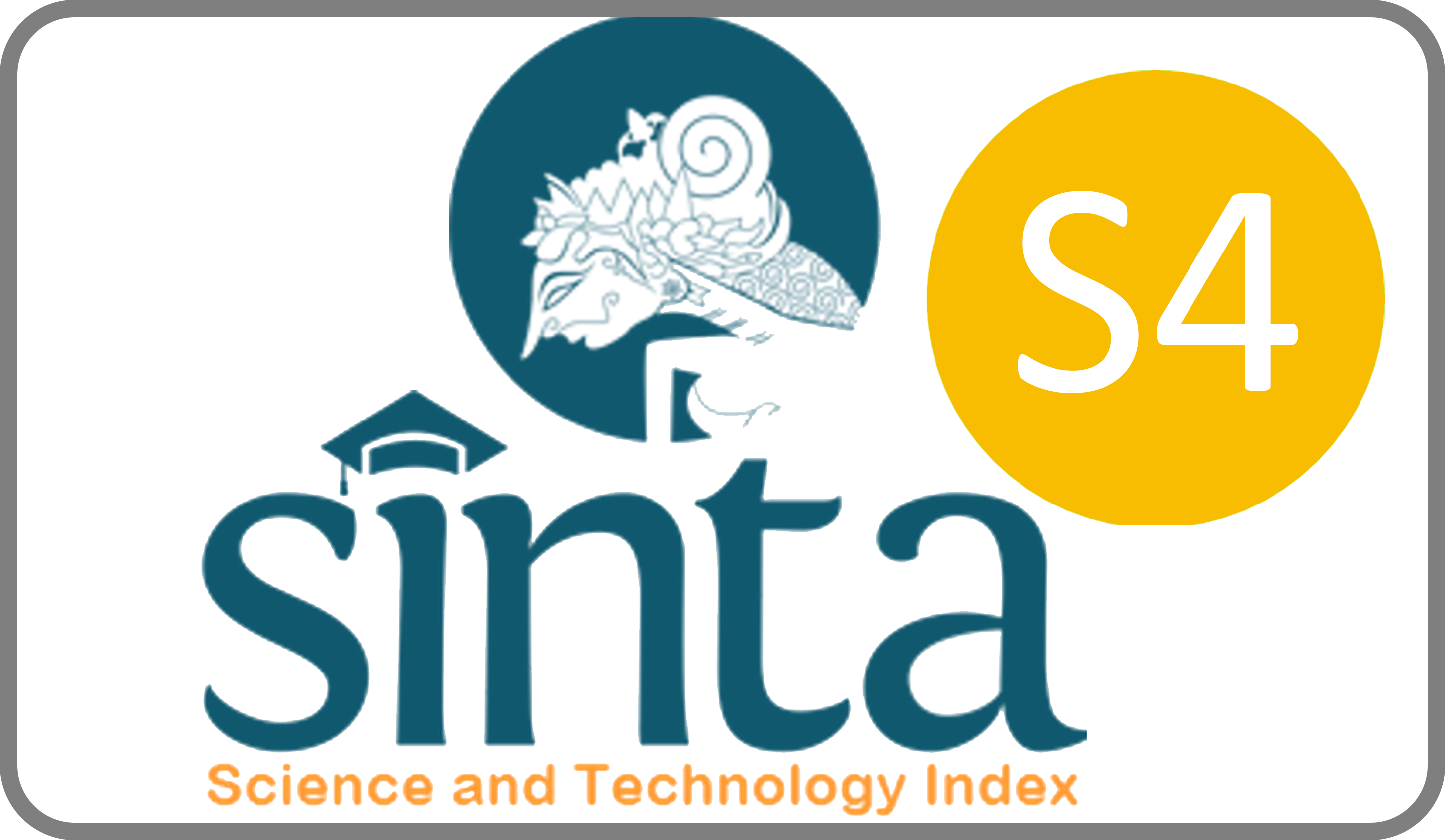MANAJEMEN PELAYANAN GIZI BURUK BERBASIS TEKNOLOGI DI KECAMATAN SUGIH WARAS KABUPATEN BOJONEGORO
Downloads
Half of all child deaths worldwide result from malnutrition (malnutrition). East Java Province provides the largest contribution from malnutrition in Indonesia and Sugih Waras District, Bojonegoro Regency, is one of the biggest contributors to malnutrition cases. Problems at the lower level often occur because there are still many posyandu that record data manually by writing it in the posyandu administration book or Kartu Menuju Sehat (KMS), which results in speed of decision making. This community service is about technology-based malnutrition service management including the creation of software (application), counseling, and demonstrations of how to use applications. The purpose of this community service activity is to provide practical knowledge to posyandu health cadres by means of counseling and villages in Sugih Waras Subdistrict, Bojonegoro Regency regarding the importance of posyandu management based on prevention technology that can reduce the number of malnutrition in Sugih Waras District, Bojonegoro Regency. The results of the pre-test and post-test on the capacity of the cadres showed an average increase of 65 percent. With this activity it helps posyandu cadres in providing fast and responsive health services and produces real time data.
abstrak
Setengah dari kematian anak-anak di seluruh dunia akibat dari adanya kekurangan nutrisi (malnutrition). Provinsi Jawa Timur memberikan kontribusi terbesar malnutrition di Indonesia dan Kecamatan Sugih Waras Kabupaten Bojonegoro menjadi salah satu daerah terbesar penyumbang kasus malnutrition. Problematika pada level bawah sering terjadi karena masih banyak posyandu yang melakukan pencatatan data secara manual dengan ditulis di buku administrasi posyandu atau Kartu Menuju Sehat (KMS), yang berakibat pada kecepatan pengambilan keputusan. Kegiatan pengabdian masyarakat ini tentang manajemen pelayanan kesehatan berbasis teknologi meliputi pembuatan software (aplikasi), penyuluhan, dan demonstrasi penggunaan aplikasi. Tujuan kegiatan pengabdian masyarakat ini adalah untuk memberikan pengetahuan praktis kepada para kader-kader kesehatan posyandu dengan cara penyuluhan dan demonstrasi di Kecamatan Sugih Waras Kabupaten Bojonegoro mengenai pentingnya manajemen posyandu berbasis teknologi sebagai upaya preventif yang dapat menekan angka malnutrition di Kecamatan Sugih Waras Kabupaten Bojonegoro. Hasil pre-test dan post-test terhadap kapasitas para kader menunjukkan peningkatan rata-rata sebesar 65 persen. Dengan kegiatan ini dapat membantu para kader posyandu dalam memberikan pelayanan kesehatan yang cepat dan responsif serta menghasilkan data bersifat real time.
Elston, J. W. T., A. J. Moosa, F. Moses, G.Walker, N. Dotta, R. J. Waldman, dan J. Wright. 2016. "Impact of the Ebola Outbreak on Health Systems and Population Health in Sierra Leone”. Journal of Public Health 38 (4), 673–678. DOI: 10.1093/pubmed/fdv158
McGovern, Mark E. Aditi Krishna, Victor M Aguayo, and SV Subramanian. 2017. "A Review of The Evidence Linking Child Stunting to Economic Outcomes”. International Journal of Epidemiology 46 (4), 1171-1191. DOI: 10.1093/ije/dyx017
Tim Nasional Percepatan Penanggulangan Kemiskinan. 2017. "100 Kabupaten/Kota Prioritas Untuk Intervensi Anak Kerdil”. Kementerian Sekretariat Negara. Diakses dari http://www.tnp2k.go.id/images/uploads/downloads/Binder_Volume1.pdf
Unicef. 2017. "Malnutritions”. Unicef Indonesia. Retrived from https://www.unicef.org/indonesia/id/media_19966.html
WHO. 2013. "Nutrition”. WHO. Retrieved from http://www.who.int/nutrition/healthygrowthproj_stunted_ videos/en/
JLM by Unair is licensed under a Creative Commons Attribution-ShareAlike 4.0 International License.
1. The journal allows the author to hold the copyright of the article without restrictions.
2. The journal allows the author(s) to retain publishing rights without restrictions
3. The legal formal aspect of journal publication accessibility refers to Creative Commons Attribution Share-Alike (CC BY-SA).
4. The Creative Commons Attribution Share-Alike (CC BY-SA) license allows re-distribution and re-use of a licensed work on the conditions that the creator is appropriately credited and that any derivative work is made available under "the same, similar or a compatible license”. Other than the conditions mentioned above, the editorial board is not responsible for copyright violation.


















